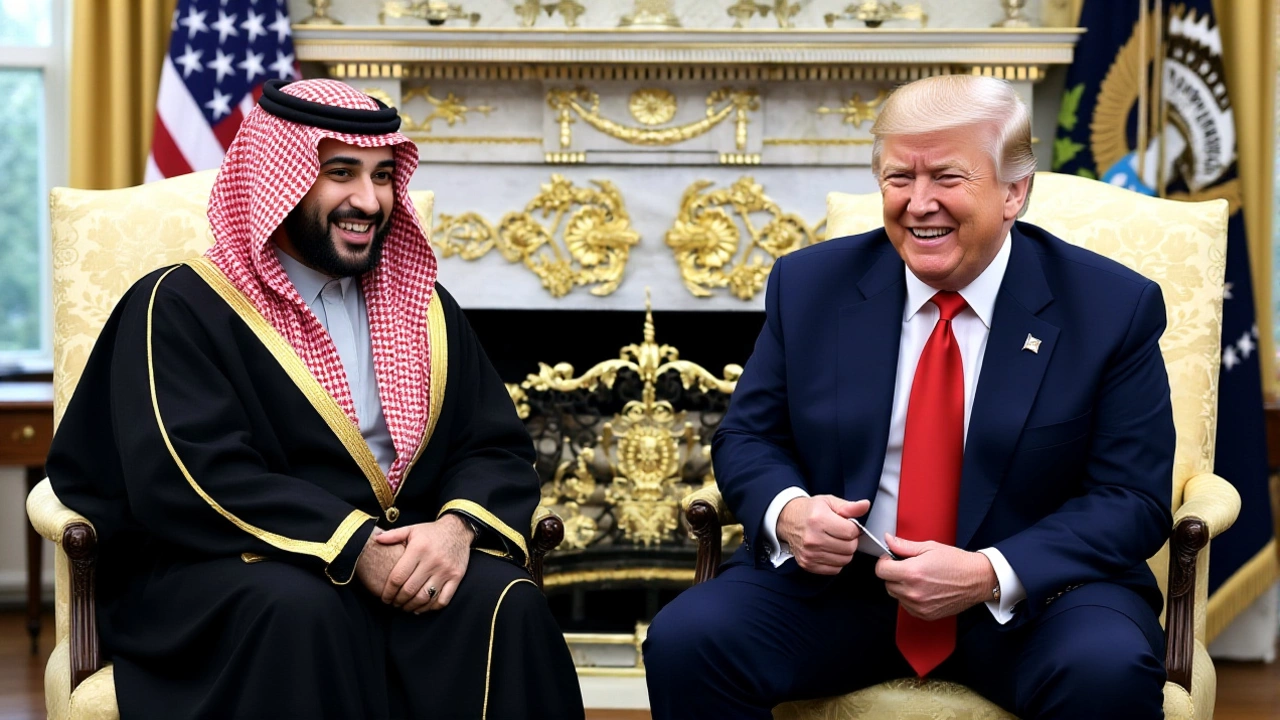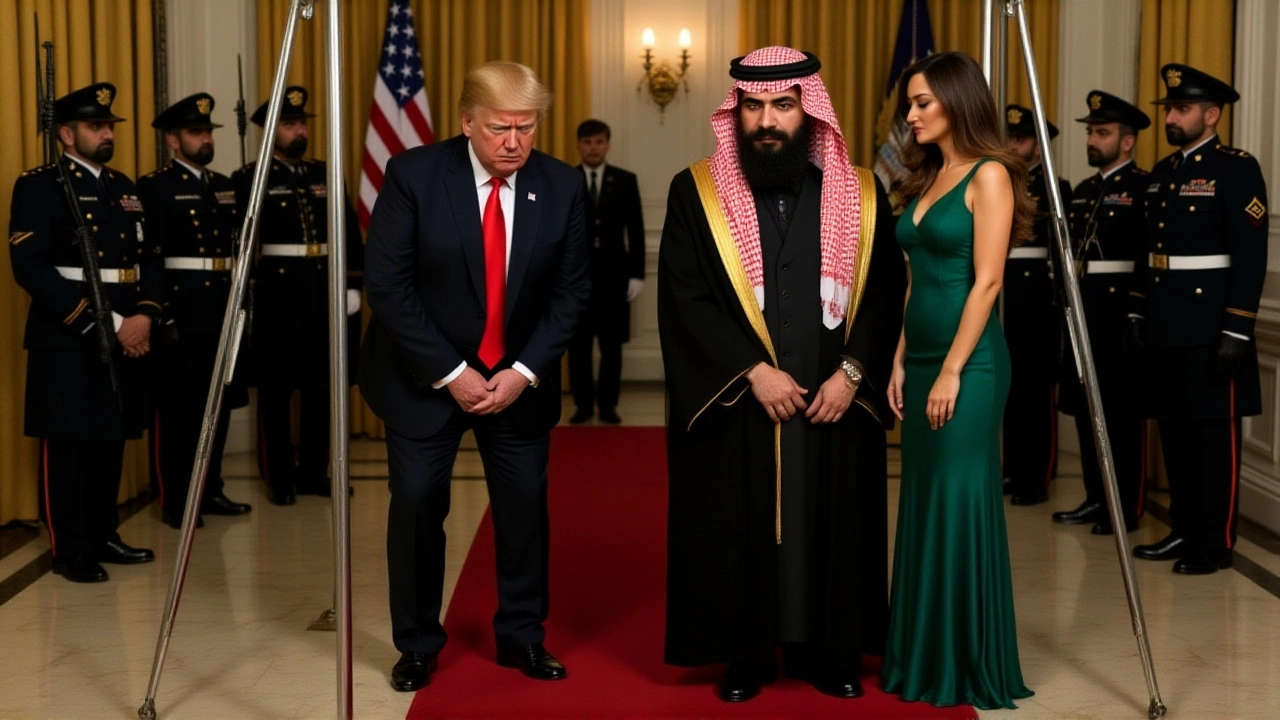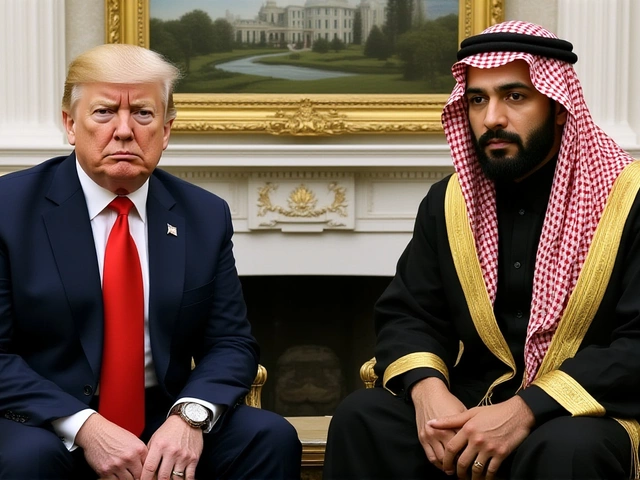On November 19, 2025, Donald J. Trump stood in the White House rose garden and declared that Crown Prince Mohammed bin Salman had "known nothing" about the 2018 killing of journalist Jamal Khashoggi — a statement that directly contradicted the U.S. intelligence community’s definitive conclusion. The moment, captured by reporters from CityNews and PBS News Hour, wasn’t just a diplomatic misstep. It was a full-throated repudiation of America’s own national security assessment — and a stark reminder of how geopolitical convenience can override moral clarity.
Contradicting the Intelligence
The Central Intelligence Agency’s 2021 declassified report left no ambiguity: Mohammed bin Salman, then Saudi Arabia’s deputy crown prince and now its de facto ruler, personally approved the operation that led to Khashoggi’s murder. The 59-year-old Jamal Khashoggi, a columnist for the Washington Post and vocal critic of the Saudi monarchy, was lured into the Saudi consulate in Istanbul on October 2, 2018, where he was strangled, dismembered, and disposed of by a 15-member Saudi hit team. U.S. analysts concluded he was seen as a threat — not because he was a terrorist, but because he exposed corruption and human rights abuses from within the diaspora.Yet during his White House visit, Trump dismissed the findings as politically motivated. "You’re mentioning somebody that was extremely controversial," he told a reporter. "A lot of people didn’t like that gentleman. Things happened. But he knew nothing about it." The reporter, visibly stunned, didn’t back down. Trump responded: "You don’t have to embarrass our guest by asking a question like that." The moment felt less like a press briefing and more like a performance — one where facts were secondary to loyalty.
A Lavish Welcome for a Controversial Guest
The contrast between the gravity of the crime and the spectacle of the welcome was jarring. Crown Prince Mohammed bin Salman, born August 31, 1985, arrived in Washington with a full military escort — a cavalcade on horseback, fighter jets roaring overhead, and a red carpet rolled out across the South Lawn. According to ABC News’ Mary Bruce and PBS News Hour’s Liz Landers, the White House spared no expense. It was a display of power, not just for the Saudi leader, but for Trump himself — signaling that alliances, even those stained by blood, are negotiable.That same day, the two leaders announced plans for a $12 billion investment package from Saudi Arabia into U.S. infrastructure, energy, and AI projects, alongside a new joint security pact. The deal, described by PBS News as part of Saudi Arabia’s "positioning itself towards the future," was framed as a win for American jobs and national security. But for human rights advocates, it felt like a reward for impunity.

Why This Matters Beyond the Headlines
This isn’t just about one interview or one visit. It’s about the erosion of America’s moral authority. When a president of the United States openly rejects the findings of its own intelligence agencies — especially on an issue as internationally condemned as Khashoggi’s murder — it sends a signal to autocrats everywhere: you can silence critics, and if you’re useful enough, the West will look away.Since 2018, the U.S. has sanctioned 17 individuals linked to the killing, but never the crown prince. The Biden administration, while publicly reaffirming the CIA’s conclusion, stopped short of imposing direct sanctions on MBS. Trump’s comments now make that ambiguity look like complicity by design. The message is clear: if you’re a strategic ally with oil, money, or influence, you’re above accountability.
And for families like Khashoggi’s — who still wait for justice — it’s a devastating blow. His fiancée, Hatice Cengiz, has spent years lobbying for accountability. "We didn’t ask for a state funeral," she told The Guardian in 2023. "We just asked for the truth to be heard."

What’s Next? The Ripple Effects
Congressional oversight committees are already signaling they’ll revisit the Khashoggi case in early 2026. Lawmakers from both parties, including Senator Chris Murphy and Representative Gregory Meeks, have pledged to reintroduce the Khashoggi Ban Act, which would bar entry to any foreign official involved in extrajudicial killings of journalists. The White House has signaled it may veto the bill.Meanwhile, Saudi Arabia’s Vision 2030 project — MBS’s billion-dollar plan to diversify the economy away from oil — is gaining traction. Tech giants like Microsoft and Oracle are quietly expanding partnerships. But ethical investors are pulling back. The World Bank’s 2025 Global Integrity Index showed Saudi Arabia’s score on press freedom dropped again last year, even as its economic ratings climbed.
One thing is certain: the world is watching. And history won’t remember the horseback parade. It’ll remember who chose to look away.
Frequently Asked Questions
How did the U.S. intelligence community reach its conclusion about MBS’s involvement?
The CIA’s 2021 assessment was based on intercepted communications, forensic analysis of the Saudi hit team’s movements, and testimony from multiple insiders, including a former bodyguard who claimed MBS personally ordered Khashoggi’s "elimination" after viewing his critical columns. The agency also cross-referenced biometric data from the consulate’s surveillance system, which confirmed Khashoggi entered but never left. No other Saudi official had the authority to authorize such an operation without MBS’s direct approval.
Why is Trump’s statement so controversial compared to previous administrations?
Previous U.S. presidents, including Obama and Biden, acknowledged the CIA’s findings without endorsing them publicly. Trump is the first sitting or former president to outright deny them — and to do so while hosting the accused individual. His framing of Khashoggi as "controversial" and implying his criticism justified his death crosses a line from diplomatic discretion into moral relativism, alarming human rights groups and allies alike.
What has Saudi Arabia done since the murder to address international criticism?
Saudi Arabia tried a show trial in 2019 that convicted five individuals of murder, but the trial was widely criticized as a sham. The crown prince was never named in court. In 2020, Riyadh established a "Media Freedom Commission," but independent journalists like Eman al-Nafjan remain imprisoned. The kingdom continues to block access to Khashoggi’s articles and suppress dissent, even as it courts Western tech and investment deals.
How are U.S. businesses responding to the renewed partnership with Saudi Arabia?
Major corporations like Boeing, BlackRock, and Google have quietly resumed negotiations with Saudi entities, citing "economic necessity" and long-term market potential. But some tech startups, particularly those focused on digital rights, have publicly refused to partner with Saudi firms. A 2025 survey by the Ethics in Business Institute found that 68% of U.S. investors under 40 would avoid Saudi-linked ventures if they knew about the Khashoggi case.
Could this lead to U.S. sanctions against MBS?
Legally, yes — but politically, unlikely. The Magnitsky Act allows sanctions against foreign officials involved in human rights abuses. However, Congress has never applied it to a sitting foreign leader with such deep economic ties. With Trump’s endorsement and Saudi Arabia’s control over global oil supply, any attempt to sanction MBS would face fierce resistance from both the White House and industry lobbyists.
What’s the legacy of Jamal Khashoggi today?
Khashoggi’s death became a global rallying cry for press freedom. The #JusticeForJamal movement has inspired over 200 journalist safety initiatives worldwide. His final columns, published posthumously, are now required reading in journalism schools from Columbia to Cape Town. More than a victim, he’s become a symbol — proof that truth, even when silenced, echoes louder than power.

Write a comment